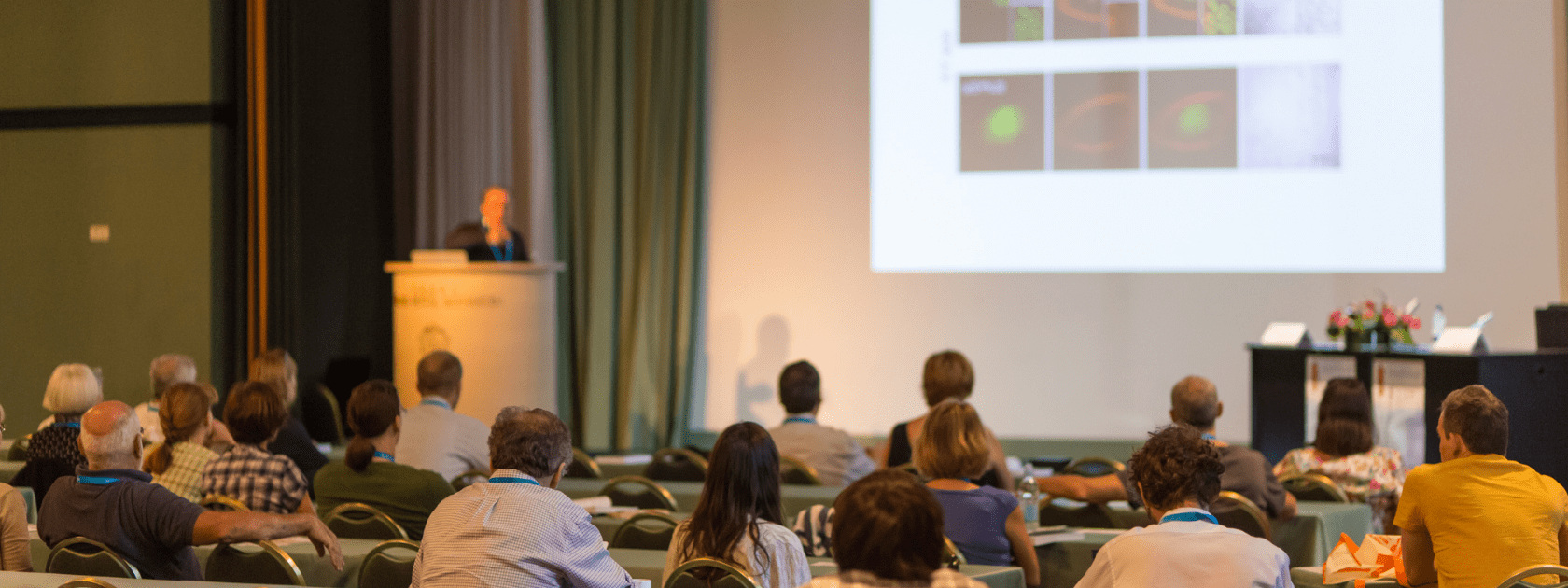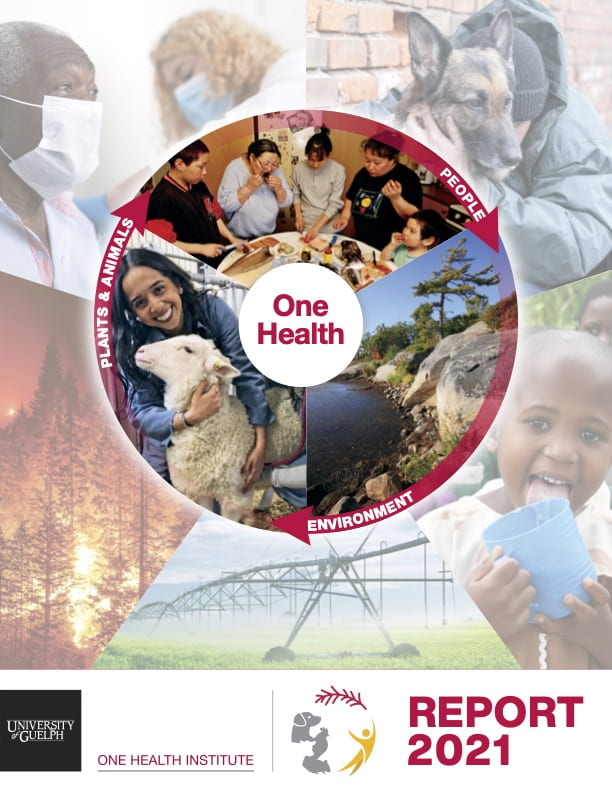Feature Stories
Student Spotlight: Carys Vyn, PhD Candidate in Population Medicine
Published November 11, 2024.
Sirine Jarrah, OHI Communications Intern.
Meet Carys Vyn – a PhD Candidate in Population Medicine with a specialization in One Health. Carys is carrying out her doctoral research on canine leptospirosis under the supervision of Drs. Lauren Grant (Department of Population Medicine), and Justin Slater (Department of Mathematics and Statistics), and has recently completed part of her research in England at the University of Liverpool under the supervision of Dr. PJ Noble.
Recently, Carys was awarded a Doctoral Canada Graduate Scholarship (CGS-D); a highly competitive scholarship intended to promote excellence at Canadian institutions by rewarding and retaining high-caliber doctoral students. The scholarships are part of a federal program and are administered by the Natural Sciences and Engineering Research Council of Canada (NSERC), the Canadian Institutes of Health Research (CIHR) and the Social Sciences and Humanities Research Council (SSHRC).
Carys has also received graduate funding through the One Health Institute! You can read more about her project and her One Health Institute-funded studentship on the OHI’s Recipients of U of G’s Partnership webpage.
When I heard about her NSERC award, I wanted to interview Carys to learn about her work, One Health, and her path to graduate school! I’ve edited our interview for readability.
What made you want to go to grad school?
I always knew I wanted to contribute to companion animal health, and I had a particular interest in zoonotic infectious diseases. At first, I wanted to become a veterinarian, however, after completing a summer research position investigating microbe surveillance in water, I fell in love with research. My interests naturally led me to OVC and Population Medicine, and I learned about One Health at this time. When I read what One Health was all about, that’s when everything clicked.
Big picture – tell me about your research. What are you working on, and why?
My research is focused on understanding risks associated with canine leptospirosis, specifically how socioeconomic, environmental, and climatic factors influence current and future risk of canine leptospirosis in Canada and the United Kingdom. A big reason why I chose to study leptospirosis is because it is a significantly understudied disease, despite being found all over the world and having major health consequences for humans and animals. It is a complex disease and requires a One Health approach to really understand it fully, which is why I find it so interesting.
What is Leptospirosis?
Leptospirosis is a climate-sensitive zoonotic disease caused by Leptospira bacteria. Most mammals can be infected and excrete bacteria through urine. Transmission can occur through direct contact with infected animal urine, and more commonly through urine-contaminated water, food, or soil.
Should we be worried about Leptospirosis?
Leptospirosis is a big issue in tropical countries where warm temperatures and high precipitation facilitates transmission, particularly in areas with limited access to adequate sanitation and healthcare. In Canada, cases of leptospirosis occur in humans and animals, but it isn’t as common. However, climate change is making our seasons warmer and wetter, which could contribute to greater risk of infection, and that is what part of my research is exploring.
Can you tell us more about your project in the UK?
I just completed a 3-month internship in the UK at the University of Liverpool with the Small Animal Veterinary Surveillance Network (SAVSNET) research group. SAVSNET routinely collects veterinary health data from across the country so that it can be utilized for national animal disease surveillance. My work will identify environmental predictors and generate risk maps of canine leptospirosis across the UK, which can be used to inform prevention efforts.
What can animals teach us about human risk?
Studying companion animals can give us hints to potential risks for humans, and can even provide early warning for infectious disease. This is because dogs share similar living conditions and exposures with their owners. In the context of leptospirosis, we already know of some shared risk factors between dogs and human, so we can use a One Health approach to further understand transmission and implement prevention efforts for both populations.
What’s next for you?
I still have two more years of my PhD and I am exploring different career paths. My main interests are in zoonotic diseases, companion animal and wildlife health, and environmental risk assessment, and my skills in epidemiology, statistics, and One Health could lead to a variety of careers. Ultimately, whatever I end up doing I want to know that my efforts have a tangible and meaningful impact.
U of G Researchers Bring Expertise to the 2024 World One Health Congress
Published October 31, 2024.
Peter Kelly, OHI Program Manager.
When the world’s One Health stakeholders gathered at the 8th World One Health Congress (WOHC) in Cape Town in September, U of G researchers were present to share their expertise and perspectives.
The World One Health Congress brings together One Health science researchers, policymakers, as well as representatives of international institutions, civil society and the private sector from around the world, to discuss major One Health challenges, i.e. those that occur at the junction of human, animal and environmental health.
Dr. Cate Dewey, Professor of Population Medicine and Director of U of G’s One Health Institute (OHI), presented research connecting epilepsy, tapeworms and butchering practices in Kenya. She also introduced WOHC participants to U of G’s Bachelor of One Health (BOH) program, which many saw as an innovative way to introduce One Health thinkers into the work force. In addition to representing U of G and the OHI on the world stage, Dewey cherished the opportunity to learn from international peers.
In addition to Dr. Dewey, several U of G graduate students attended the Congress. Simon Jeeves, a PhD candidate in Pathobiology in the Dept. of Pathobiology, Riley Oremush, a PhD candidate in the Dept. of Population Medicine, and Manuel Pérez Maldonado, a PhD candidate in Epidemiology and the Dept. of Population Medicine, presented their graduate research findings.
Jeeves, who researches novel betacoronaviruses in mice, appreciated that the WOHC gave him “the opportunity to network with researchers from diverse backgrounds and locations,” going on to say that “it was a joy to network with wildlife disease researchers from Europe, Africa and Asia.”
Oremush, who presented on the factors that affect spillover of HPAI H5N1 on poultry farms and participated in a zoonoses and spillover panel, found it rewarding to discuss his research with his peers, noting that “networking opportunities are the backbone of effective One Health collaborations and research.”
Pérez Maldonado was excited to learn about One Health projects at the community level in several African countries. He hopes that these projects “will be maintained and improved (…) so that they serve as an example to the rest of the world.”
A common thread throughout the WOHC was the importance of incorporating social sciences into the One Health approach. Dewey attended one session where social scientists admitted to having to ‘sell’ their skills to One Health teams. “We need more social scientists and policymakers involved to ensure the long-term sustainability of One Health solutions, so that these solutions can be integrated into law” says Pérez Maldonado, noting that this “is the only way to ensure that these efforts last and will continue to be effective.”
All U of G attendees felt strongly that a continued presence on the international stage was warranted. As Dr. Dewey expressed, “complex One Health problems do not respect national boundaries – climate change, antimicrobial resistance and diseases like rabies and SARS-CoV-2 are international problems.” To address these challenges, there is a demonstrable need to develop One Health networks that span continents.
For her part, Dr. Dewey believes it is essential for University of Guelph faculty and students to attend future World One Health Congresses where we continue to share the news about U of G’s strong One Health programming and research to governments, universities and NGOs around the world.
OHI Annual Reports
Newsletters
The biweekly One Health Newsletter provides information on One Health news and events including seminars, conferences and much more happening here at the University of Guelph and other relevant institutions.
2024
2023
2022
2021
2020
Stay Connected
Check us out on social media and click here to access our latest newsletter












